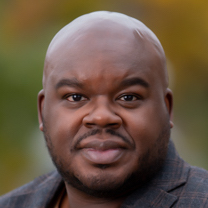
Racial discrimination was found to be a significant force behind higher levels of depression among college-educated Black Americans, finds a new study from the Brown School at Washington University in St. Louis.
“Our results indicate that there is an alarming level of depression among upwardly mobile — which we define as college-educated — Black Americans,” said Darrell Hudson, an associate professor and lead author of the study.
Dr. Hudson and his colleagues surveyed a large group of African Americans who were 24 years or older and had earned at least a four-year college degree. Nearly 40 percent of the sample reported symptoms that were indicative of significant depressive symptoms. Additionally, 15.5 percent of the sample reported that they had been diagnosed with depression by a health care provider at some point in their lives.
Exposure to discrimination was assessed by major and everyday discrimination scales. Respondents were asked about restaurant service, name calling, threats, hiring and firing practices, being stopped by police, etc. The findings indicated that there is a significant association between everyday discrimination and depressive symptoms. Everyday discrimination alone accounted for 22 percent of the variance in depressive symptoms.
Dr. Hudson joined the faculty at Washington University in 2011. He is a graduate of Morehouse College in Atlanta, where he majored in psychology. He holds a master of public health degree and a Ph.D. in health behavior and health education from the University of Michigan.
The full study, “Understanding the Impact of Contemporary Racism on the Mental Health of Middle-Class Black Americans,” was published in the International Journal of Environmental Research and Public Health. It may be accessed here.











